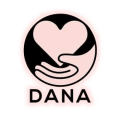Dana’s charity trip (2020) to Aboriginal villages in Tapah, Malaysia was a big success.
We visited the Aboriginal people (mainly of Semai ethnicity) in Dem 17 Tapah. There are three villages including Kampung Dem, Kampung Skem 1 and Kampung Skem 2 scattered in a hill surrounded by a dam. According to the census, there are 130 families in this area.
Unfortunately , this area is gated by Tenaga Nasional Berhad (TNB), hence these villages are not easily accessible by the public. We need to send in an application letter beforehand to obtain permission for our food trucks and volunteer vehicles to enter.
After a 5 minutes’ drive from the gate, we arrived at the bottom of the hill. There is no pathway for cars to access the villages. Thankfully the people came down on their motorbikes to help us carry food and other donated items up to the village. It was a 20 minutes’ walk from the bottom to the first village; from the first village there was another one hour walking distance before arriving at the furthest village.
The road uphill was barely wide enough for the two wheels to pass. Without any proper fencing , the villagers were actually exposed to the risk of falling down the cliff. Up to date, this area has no electricity supply and no phone network or internet coverage.
We started our Malaysia Orang Asli charity event by donating out the clothes, shoes and bags. We could see the happy faces and big smiles when they picked the items that they needed.
Dana is honoured enough to have a medical team that came along with us this time, which was led by Dr Chee Peng Hor, worked along with Sister Chin, Michelle Lim and Annie. As some people who could not walk down to meet our medical team , Dr Peng and I decided to go further up the hill for medical consultation and medicine distribution. The villagers were very happy to have our presence.
Miss Hoy Yee taught the Orang Asli girls about natural enzyme making.
Miss Ng Bee Lian introduced the organic cotton reusable pad to the girls. We have donated a total of 22 sets of reusable pads plus approximately 8 kg of handmade household soap. I’d like to mention that the soaps are love from our Melbourne volunteers.
Our lovely volunteers Adriel and Ming Ming did a fabulous job in bringing happiness by performing face painting and interactive activities to the kids during our charity trip. Besides that, the kids were so happy when receiving various types of stationery.Bringing joy and laughter to the kids is always one of our aims, under any circumstances.
For this charity trip, we have donated 1300kg of white rice, 260kg of cooking oil, 130 packs of crackers, flour, sugar and salt respectively.(There were total 130 families and for each family we have given out 10kg of rice, 2 kg of cooking oil, 1 pack of crackers, flour, sugar and salt respectively.)
Meanwhile, sustainability is one of the Danas’ main objectives in community service. We are glad that we are one step closer to meet this target during our Orang Asli charity trip.
Before this trip, a few people confronted me as to why I would choose to help the orang asli since they are “known to be lazy and unmotivated”. Let me tell you something that we learnt from the trip which could change some of the general bias regarding the “lazy” orang asli.
In fact, the aboriginal people that we met have lost their hunting skills as a result of the government enforced trap-setting ban. Young healthy men will choose to work in the city as contractor labourers, but not all can persist mainly due to different lifestyles in the city and fear that they will lose their homeland if too many people leave the village. Some teenagers capture butterflies and sell to specimen makers, and it brings them a profit of 20cents per butterfly, while some other Orang Asli prefer to make a sustainable life from nature, Long is one of them. He told me he tried to plant cassava despite the threat of wild boars but only to manage to sell at RM2 a big basket. They planted chili but the selling price was not guaranteed. They planted cocoa trees but unfortunately there were no buyers and hence they forced to cut down the plants. In order to protect the environment and soil quality, they choose not to give fertilizer and practice the traditional farming way.
When he approached me , I could tell his frustration from his eyes. He has been planting organic Arabica cocoa trees since 5 years ago, but until now he could not find a pathway for his sales. Fortunately, one of our volunteers Tere Tere Boz could see the potential, she will bring the organic beans for quality assessment and then we will try our best to help sell the products in the city. This is the ultimate goal of Dana. By creating a successful business network, we may not only bring income to a family but also bring hope to the village.
